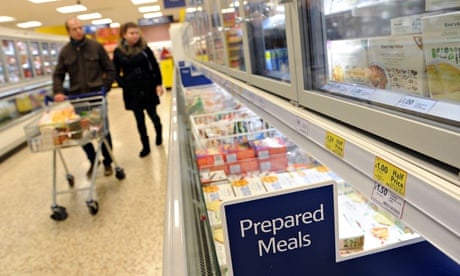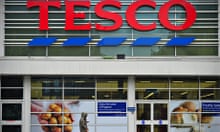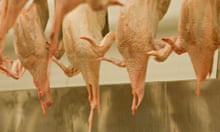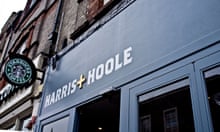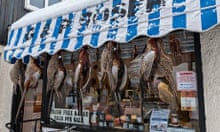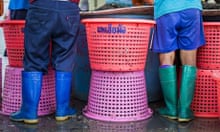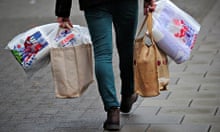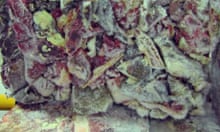Tesco is under fire from farmers after cutting the amount of British beef it bought last year despite promising to source closer to home in the wake of the horsemeat scandal.
The UK's biggest supermarket bought nearly 8% less British beef in November 2013 than it did a year earlier despite taking out full-page advertisements 12 months ago saying: "We know that the more we work with British farmers the better."
The findings came from a National Farmers Union (NFU) report card on the progress of the UK's biggest grocers, which all said they wanted to buy more in Britain in order to keep a closer eye on their suppliers after horsemeat was found in burgers and ready meals stocked in Tesco, Aldi and Asda.
Tesco was the most criticised supermarket in the report, with seven areas of improvement compared with two each for Morrisons and the Co-op, five for Asda and four for Sainsbury's.
Morrisons may be under pressure from shareholders amid struggling with falling sales and profits, but the NFU said the Bradford-based supermarket was a "shining example of commitment to British-produced food", as it sourced the vast majority of its own-label meat from the UK as well as milk and eggs.
While Tesco has achieved its aim of sourcing all fresh chicken in the UK, as promised in its adverts a year ago, the report says the supermarket has not set a timetable for its aim of putting British chicken in all its ready meals and has not even set an "aspiration" to source 100% British lamb in season.
"Tesco's public commitments to source more of its food closer to home do raise expectations that a concerted effort is being made to increase the amount of British produce sourced," the report said.
The supermarket was subject to particular scrutiny after its chief executive, Philip Clarke, promised farmers a much closer relationship at last year's NFU conference.
Phil Hudson, the head of food and farming at the NFU, said: "Tesco has made some progress but we want to see that progress accelerate in terms of the commitments made by Phil Clarke made a year ago. If you come to the NFU conference and make commitments clearly you can be expected to hold to them."
However, Tesco said it did not recognise the 8% fall in its purchase of British beef highlighted by the NFU and that all its beef was sourced in either the UK or Ireland, which customers did not differentiate between.
The supermarket added that, as a result of sourcing all its fresh chicken in the UK, it now bought 20,000 tonnes more British chicken a year.
A spokesman said: "We are proud to be British agriculture's biggest customer and are continually strengthening our relationships with our farmers and growers. We have made good progress which has been well received, and have already met the specific commitments we made last year.-quality, affordable food, we will always be driven by our customers."
Asda was also marked down by the NFU for sourcing 1% less British lamb in November last year compared with a year before. Although the Walmart-owned chain did increase the amount of British beef it bought last year by 6%, it commits to buying only milk and eggs entirely in the UK.
The NFU challenged Asda to source all its beef, chicken and pork in the UK, as do Sainsbury's, Morrisons and the Co-op.
Asda said all its whole chickens were 100% British. A spokeswoman added: "At Asda, we are supportive of the British farming industry and we always aim to source British meat first."
Sainsbury's already commits to buy all its milk, eggs, pork and fresh chicken in the UK and 100% lamb in the UK in season. It buys all its beef in either the UK or Ireland.
However the NFU said it had failed to make clear how it would measure and achieve its stated objective of doubling the amount of British food in stores by 2020.
Justin King, the Sainsbury's chief executive, said on Tuesday that the target was measured from a 2010 baseline but admitted that the supermarket had no specific definition of how the target would be measured.
He said it could be reached by either increasing the volume of food bought in Britain or by increasing the value of that food from the £4bn bought in 2010, although he admitted basing it on value would be slightly spurious given the effect of inflation. Despite that, he said: "I think that's a massive commitment, way beyond anyone else. Even if we achieve 80% [of that target] that would still be magnificent."
The NFU's assessment is another blow to supermarkets, which are struggling to win back shoppers' trust in the wake of the horsemeat scandal. A survey revealed that public trust in supermarkets had sunk to 52%, down from 69% before the scandal rocked the industry last year.
King said it would take "many, many years" for the industry to regain the levels of trust it formerly enjoyed. Sainsbury's has benefited from the fact that no horsemeat was found in any of its products, but King said even his company would take some time to truly win over shoppers again.
